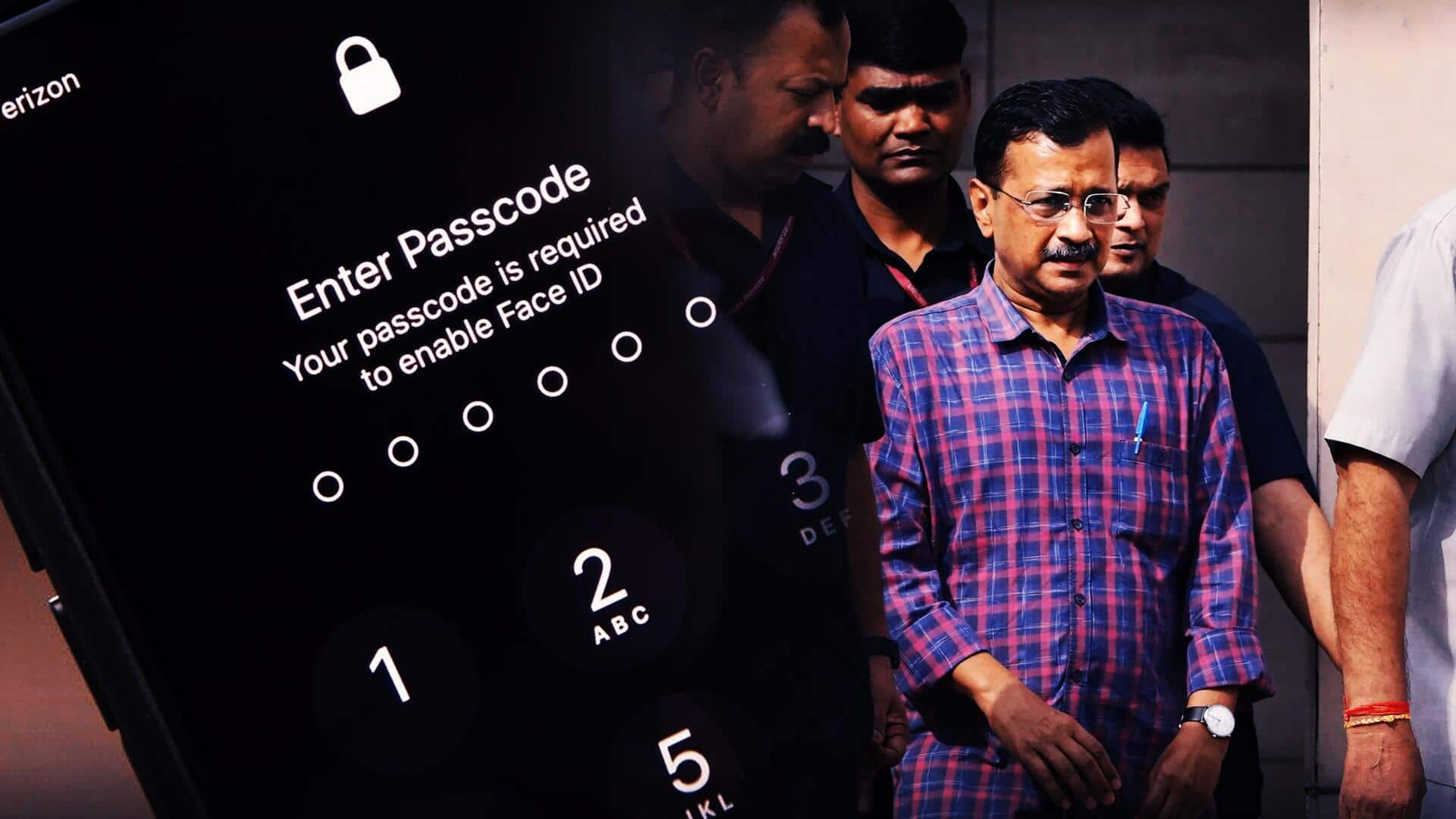
Explained: Why Apple declined ED's request to unlock Kejriwal's iPhone
What's the story
Apple has reportedly turned down the Enforcement Directorate (ED)'s request for assistance in unlocking the iPhone of Delhi Chief Minister Arvind Kejriwal. The reason has more to do with the United States-based tech giant's stringent policies than its unwillingness to help the central agency. One such policy is the "Legal Process Guidelines" for non-US government and law enforcement agencies, which prohibits the company from providing passcodes for locked iOS devices.
Context
Why does this story matter?
The ED had reportedly approached Apple to unlock Kejriwal's iPhone as part of its investigation into the alleged liquor scam case. It has labeled Kejriwal a "mastermind behind the scam" and a "principal conspirator." It alleged that Kejriwal, along with other AAP leaders and ministers, played a direct role in formulating this policy favoring a group known as the "South Group" in exchange for kickbacks. The bribe was then used to fund the party's election campaign in Goa and Punjab.
Kejriwal
Kejriwal turned off his iPhone the day of his arrest
When Kejriwal was arrested by the ED on March 21, he had reportedly turned off his phone. He has since refused to share the password for his iPhone. He claims that if ED gains access to his phone, they will be able to learn about the AAP's "election strategy" and alliance details. Under Apple's policy, an iPhone cannot be unlocked without the user's consent. This means that Kejriwal's phone cannot be unlocked without his approval.
Team
Apple says it carefully reviews all legal requests
However, this is not to say that the tech company doesn't respond to a government's request. In fact, the company has a dedicated team to respond to the government's requests and also "responds to emergency requests globally 24/7." The company says it is open to receiving legally valid requests from official government or law enforcement email addresses, but reserves the right to reject any request deemed ambiguous, inappropriate, or excessively broad.
History
Apple's history of denying unlocking requests
In recent years, there have been multiple instances where governments around the world have sought Apple's help in unlocking iPhones. In 2016, a federal judge asked Apple for assistance in unlocking the iPhones of two accused terrorists involved in the 2015 San Bernardino attack. Apple, however, refused to assist the Federal Bureau of Investigation (FBI) in bypassing security features. The US government later claimed that it was able to unlock the iPhone with the help of a third party.
Posthumous access
Apple's policy on accessing deceased customer's data
So, what happens in the event of a customer's death? In such cases, Apple allows family members to request access to or deletion of their Apple ID and stored data. To use devices associated with a deceased person's original Apple ID with another ID, they must be reset to factory settings first. Devices secured with a passcode are protected by passcode encryption and can't be unlocked without erasing the device, according to the company's policy.